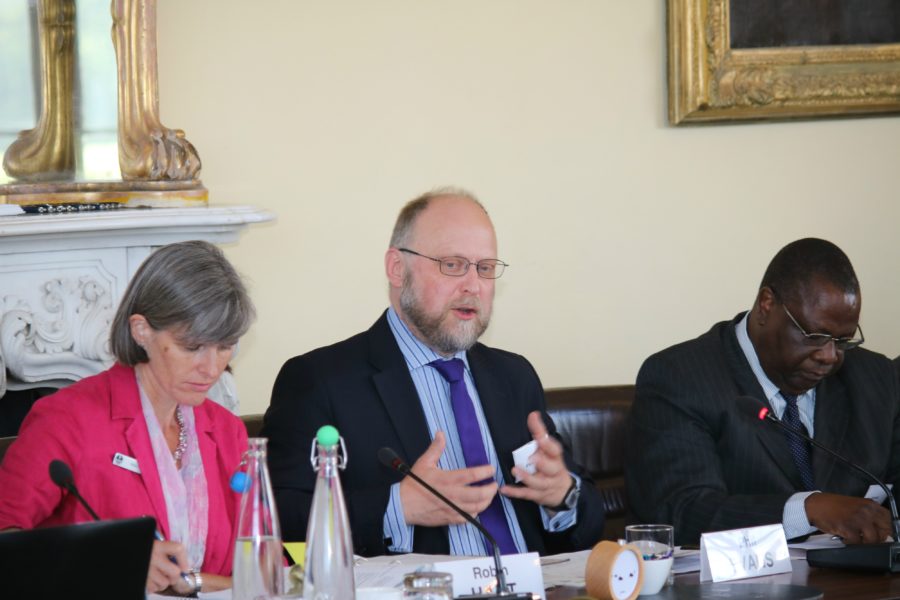29th September 2016 London, UK
Stimulating the debate: early warnings for protection and resilience

Phil Evans, Met Office Government Services Director, during the opening session
Arriving at Wiston House in West Sussex in glorious sunshine yesterday was a little incongruous with the topics, which will be under discussion this week. My colleagues and I are attending a Wilton Park event designed to stimulate dialogue on building and improving early-warning systems to prevent and reduce the impact of flooding in the Greater Horn of Africa – an area stretching from Sudan to Somalia and Kenya. Serious flooding is still fresh in the minds of those of us in the UK, and the impacts caused by floods are increased many times over in the more vulnerable parts of the world.
A wide range of meteorology, hydrology and disaster risk reduction experts from the Greater Horn of Africa and further afield have gathered at Wilton Park to address the pressing need to build more effective early-warning systems. The World Meteorological Organization (WMO), the Met Office and Wilton Park have worked together to develop an event which will provoke discussion and debate between scientists and practitioners on the challenges faced and potential solutions.
The challenges are many. How do we ensure that early-warning systems have relevance to the communities they are aimed at? How can we ensure warnings are delivered in such a way that decision makers are able to act? How do we take the best of ever-improving science and turn it into practical advice which will protect lives, livelihoods and property?
The event started yesterday afternoon with an opening session from Wilton Park, the Met Office and the WMO. Phil Evans, Met Office Director of Government Services, spoke about the importance of working in collaboration to address these challenges and move forward with discussions started with the adoption of the Sendai Framework for Disaster Risk Reduction in 2015.
After some initial discussions on the first day, the event continues for two more days during which subjects will include communications, regional initiatives and evaluating good practice. The end goal is to share collective knowledge and start a conversation which will ultimately make a real difference on the ground. I, for one, am looking forward to what will undoubtedly be a range of insightful and intelligent debates and conversations. And I await with anticipation the conclusions at the end of the event, which I hope will continue to support ongoing collaboration and lead to positive and meaningful change.
